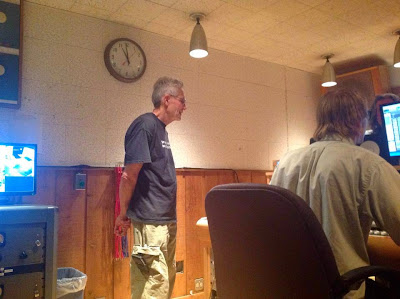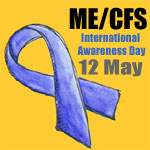Thursday, April 24
Here's another shot of the amazing Steinway grand at RCA Studio B and the person who was lucky enough to get to play it. (Me! That's me!)
Did you notice that there's something draped over the lid of the piano?
That's an acoustic blanket. It enabled us to record in real time.
Back when we made Highways and Hiking Shoes, we laid down all the parts separately. The sequence went like this:
- Ron recorded his drum tracks, along with my scratch vocals and scratch keyboard. (Scratch tracks are what you record to accompany the musicians laying down the real tracks. Without them, Ron would be playing by himself.
- I recorded my piano parts while listening to Ron's drum tracks and my scratch vocals on headphones.
- I recorded my vocals while listening to Ron's drums and my piano on headphones.
Hence the acoustic blankets. Producer Drew brought them to the studio to separate my vocal mic from the piano mic. If everything went according to plan, the vocals and piano wouldn't bleed into each other. (Producer Drew told us we should go back to Electric Kite Studio later to record additional vocals as a fallback, just in case everything didn't go to plan.)
The studio also had baffles, large wooden structures on wheels, to separate drums from the keyboard and vocals.
Recording in real time felt different than doing it studio-style. More immediate, more in the now. Ben, our recording engineer, had leaned toward this approach because he thought it would yield better energy.
I see what he means.








